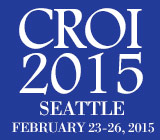 Given to treatment-experienced people with HIV, Bristol-Myers Squibb’s attachment inhibitor BMS-663068, or fostemsavir, demonstrated potentcy in the range of Norvir (ritonavir)-boosted Reyataz (atazanavir). Findings of the ongoing Phase IIb trial of 254 treatment-experienced people with HIV were presented at the 2015 Conference on Retroviruses and Opportunistic Infections (CROI) in Seattle.
Given to treatment-experienced people with HIV, Bristol-Myers Squibb’s attachment inhibitor BMS-663068, or fostemsavir, demonstrated potentcy in the range of Norvir (ritonavir)-boosted Reyataz (atazanavir). Findings of the ongoing Phase IIb trial of 254 treatment-experienced people with HIV were presented at the 2015 Conference on Retroviruses and Opportunistic Infections (CROI) in Seattle.
The participants were randomized into four groups, which received BMS-663068 at the following doses: 400 milligrams (43 participants) twice daily; 800 mg twice daily (39); 600 mg once daily (45); and 1,200 mg once daily (42). A control group received Norvir-boosted Reyataz once daily (41). All of the participants also took 400 mg of Isentress (raltegravir) twice daily and 300 mg of Viread (tenofovir) once daily.
BMS-663068 is a prodrug that converts to its active form, BMS-626529, inside the body. It is an attachment inhibitor, a new class of antiretroviral that works by binding to the gp120 protein on the surface of HIV, preventing the virus from attaching to CD4 cells to infect them.
Between 61 and 82 percent of those taking the BMS medication had an undetectable viral load after 48 weeks of treatment, compared with 71 percent in the boosted Reyataz arm.
BMS-663068 was well tolerated, and no one discontinued treatment because of side effects. The most common side effects were headache (2 percent in the 800 mg group) and abdominal pain (2 percent in the 1,200 mg group).
This week BMS started a Phase III trial of the attachment inhibitor among participants who are unable to find a successful ARV regimen because of drug resistance, an inability to tolerate past regimens, or safety clashes between ARVs and other medications or health conditions.
Advertisement
Advertisement
Advertisement






Comments
Comments